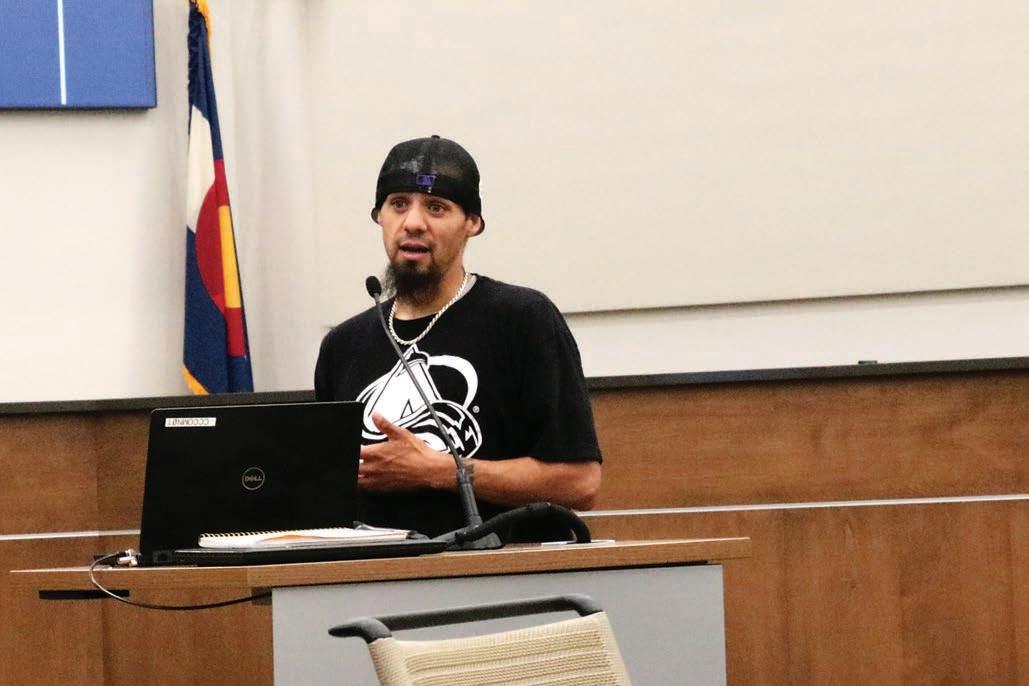
2 minute read
homelessness encourages dialogue
BY NINA JOSS NJOSS@COLORADOCOMMUNITYMEDIA.COM
Chattering voices lled the Littleton council chambers on the morning July 11, as people gathered around tables and wrote ideas on giant notepads in colorful markers. e gathering of approximately 50 city o cials, business owners, other community members and representatives of the Tri-Cities Homelessness Initiative was focused on homelessness in Littleton.
Over co ee and pastries, people shared their concerns, curiosity, disagreement and ideas on the topic.
“I’m grateful to be a part of this project to listen and to put our heads together as we address this issue, that both brings up these emotions that are real and intense, and brings compassion and fear and a vision of who we want to be as a community,” said Amanda Hender- son, who facilitated the event.

Henderson, the director of the Institute for Religion, Politics and Culture at the Ili School of eology in Denver, was contracted by the city to help facilitate public engagement on the topic of homelessness in Littleton.
Success and hope e highlight of the meeting for many was when Joshua Casias shared his story.

Casias grew up in Littleton and attended Littleton High School, he said. He received a scholarship to play hockey at the University of Denver, but lost this opportunity when he started using drugs.
He was expelled from Littleton High School for selling marijuana and then was in and out of prison for about 15 years, struggling with drug use. He started living on the streets and had a challenging rela- tionship with his family.

During this time, he met the teams at GraceFull Cafe and e Life Center, community-serving organizations in Littleton, and started looking for help.
He now lives in a halfway house, has a job and is saving money. He’s looking to soon move into a sober living home and is getting married soon.
“Where I was at before and where I’m at now is just two di erent lifestyles,” he said. “From using methamphetamine on the streets to having a job and getting married soon — it’s incredible.”
“Josh, everyone in this room, I’m sure, is so happy to hear of your success,” one community member said at the end of the meeting. “We applaud you — and reach out, get our names — anything we can do,
In the wake of the murder of George Floyd in the summer of 2020, people and groups across the country started to think seriously about law enforcement behavior.
In response to these national conversations, the Center for Innovations in Community Safety at Georgetown Law launched a national project called Active Bystandership for Law Enforcement, or ABLE.

“(In) state law, there’s a duty to intervene when officers are stepping over the line and going outside the bounds of what they need to be doing and what’s right,” Littleton Police Chief Doug Stephens said. “But we’ve never really had any kind of formal training on overcoming those natural human tendencies to not take action.”
Littleton Police Department’s 80 sworn personnel completed the eight-hour class in June. The department also agreed to the project’s standards, which require a yearly refresher training and a commitment to making active bystandership a part of their day-to-day expectations.
SEE POLICE, P15






